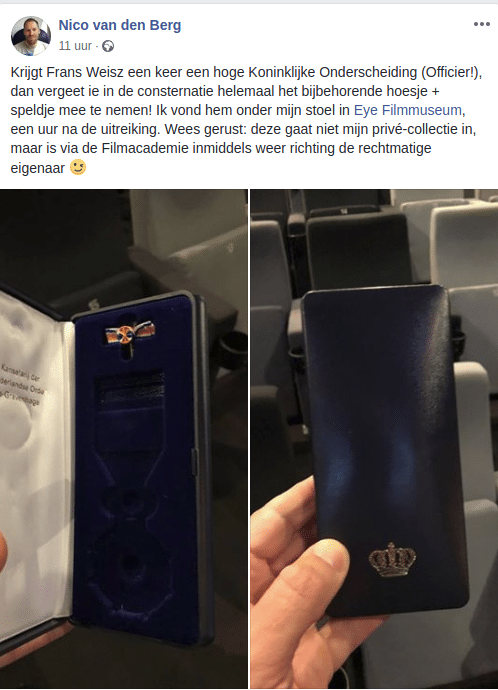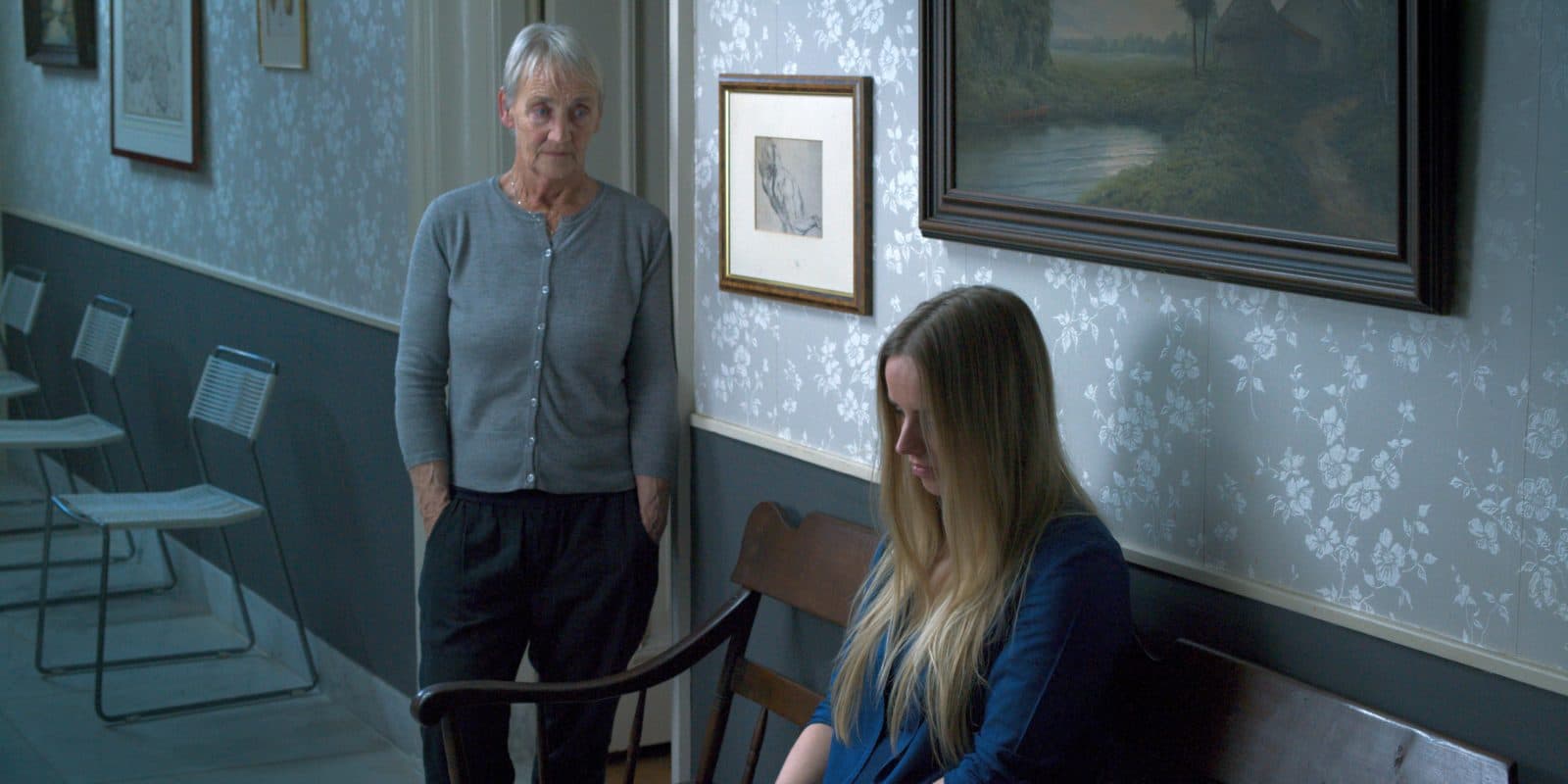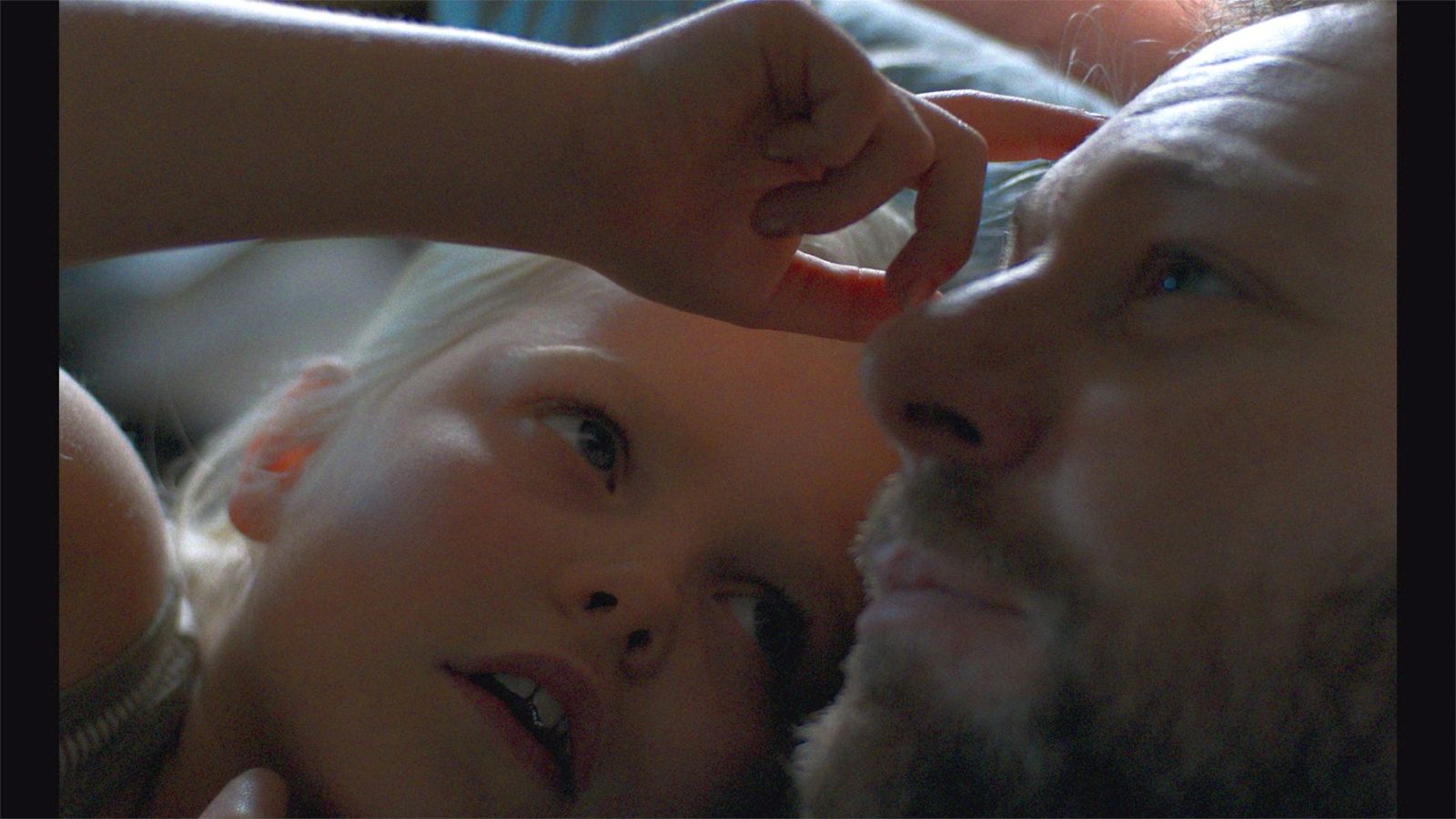Fun quiz question: who was the very first student at the Film Academy? This doesn't just bubble up by chance - I'll come back to it later. After all, the Film Academy is 60 years old. The first film screened on Monday at the presentation of final exam papers was a nice present for the jubilarians.
For their documentary The Netherlands Film Academy presents Josephine Moen and Dominique Hoogendoorn delved into the Academy's archives. An anthology of graduation work, plus a filmmaker from each decade who looks back on it now. Apart from great stories about youthful ambitions, this also yields a fine series of period footage. These show how themes and approaches of the students changed over time. After rebellion and protest in the 1970s (Mijke de Jong) came the influence of Tarantino. After playing with blood and bullets (Martin Koolhoven), someone like Jiska Rickels sought to reconnect with reality. Nowadays, we see how many film students seek it in small, personal subjects. I'm generalising somewhat crudely, but still.
Ego docs
To illustrate, of the six graduation films in the documentary section, three fall into the ego-doc category. Documentaries whose subjects are the maker himself and those close to him. It is understandable that a young, just starting maker seeks his substance in things he knows well. Making yourself the subject can even be called courageous. That said, I did miss films with a bit more far-reaching engagement or curiosity. Also in the fiction section. The Soap of Life, a documentary by Sjoerd Niekamp about Congolese soap actors in Belgium is coming along way.
Shoemaker
But the real surprise was Karbaat's seed. In it, director Miriam Guttmann examines the case of sham fertility doctor Jan Karbaat. This one secretly fertilised numerous women's wives with his own sperm. In the film, two mothers and two young adult children recount what this disconcerting discovery did to them. Sparingly shot with sharply chosen archive footage.
Based on the brief description, I expected an obligatory, reportage-style case-study, but it turned out differently. Guttmann and her team show how even in a documentary, a confident and tightly designed form makes all the difference. With as much attention to composition, set and editing as in a feature film, these very personal stories grow into something that transcends the case. When the children wrestle with the question of whether they might also have inherited Karbaat's not-so-nice traits, it impresses not only because of their candour. The style, as sober as it is unusual, makes it more universal. What binds us, what makes us who we are. Karbaat's seed received the VPRO Documentary Award. I can only agree with that.
Off the beaten track
In the fiction section for me was SISTERS by Daphne Lucker (directing) a similar surprise, although quite different. The bond between three sisters in a problem family. How do you show how they cope with each other and with an outside threat? Well, by making them dance. Almost without words, this stylised play is nevertheless very concrete and expressive in emotional terms. A bold and beautiful crossover between dance and film, a subgenre rare among graduation films. This inspired off-the-beaten-path performance was awarded the Topkapi Films Fiction Award.
Children's World
A theme that crops up several times in the 2018 batch is the struggle between child and father. This was most beautifully and subtly elaborated by Florence Bouvy (direction) and Jessie Tiemeijer (screenplay) in To the end of the world. How an eight-year-old girl regularly sees her still-playful world collide with that of her father. A father who is of good will, but who fails to take good care of himself and her. How love teeters with inability. Sober and, despite everything, with a glimmer of hope.
Strong and convincing is the consistent way everything is always shown from the child's perspective. This is partly thanks to the moving leading role of the perky young actress Linde van der Storm. The whole thing could have been a bit less impressionistic as far as I was concerned, but my colleagues on the jury of the Kring van Nederlandse Filmjournalisten were not deterred by that. To the end of the world got the KNF Price for best Film Academy graduation film.
Awards for best screenplay (Denise Rebergen) and best commercial (Victor Horstink) were also presented on Monday. New this year is the award for best film score (Tom Schipper). More on the films, awards and jury reports at the website of the Film Academy.
All films will be in EYE to see.
Frans Weisz honoured
Returning to the 60th anniversary of Film Academy: director Bart Römer informed that this will be celebrated appropriately after the summer. We will hear more then. For now, he announced the creation of a so-called 'wall of fame'. A gallery of honour with photo portraits of special former pupils. Starting with Frans Weisz, coincidentally also the first student to enrol at the film school, and Nouchka van Brakel. For Weisz (Life is vurrukkulluk) there was an additional surprise. Arts and Culture councillor Touria Meliani was present to pin on him the decorations upon his appointment as an Officer in the Order of Orange-Nassau.
And then this:



